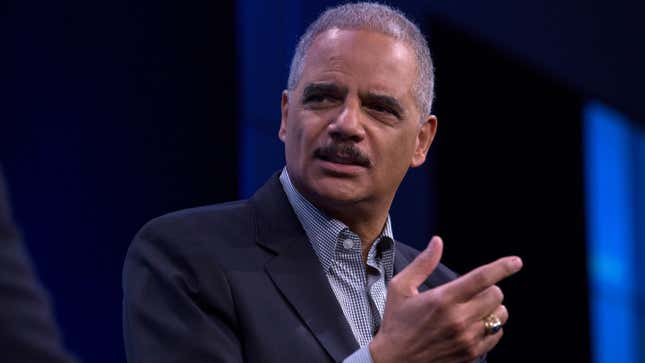
Microsoft is bringing on former US Attorney General Eric Holder to investigate whether AnyVision, a facial recognition company it invested in over the summer, violated Microsoft’s ethics guidelines, according to an NBC News report Friday.
As part of its $74 million deal with Microsoft, the Israeli startup agreed to abide by the company’s six ethical principles in developing and using its “advanced tactical surveillance” technology, Better Tomorrow. Those principles include fairness, non-discrimination, notice and consent, transparency, accountability, and lawful surveillance.
Holder, who has also recently assisted other tech giants like Uber and Airbnb in navigating tricky legal waters, has been hired to lead an audit over AnyVision’s use of this system, which can identify and monitor individuals across multiple live feeds. According to an NPR report, the company operates in roughly 40 countries, mostly bolstering security in banks and law enforcement agencies. At the center of this auditing process, however, is how Israeli military checkpoints in the West Bank have used AnyVision’s facial recognition software to screen Palestinians passing through.
News of the deal prompted heavy backlash from privacy activists and the American Civil Liberties Union. Multiple reports have alleged AnyVision carries out covert military surveillance on Palestinians under the guise of national security concerns, an initiative purportedly so successful it earned AnyVision Israel’s top defense prize in 2018 for preventing “hundreds of terror attacks” according to the country’s prime minister, though he didn’t refer to the company by name, per an NBC News investigation last month.
For its part, the startup has denied these claims in no uncertain terms. “AnyVision’s facial recognition technology is not being used for surveillance in the West Bank or the Gaza Strip, and AnyVision would not allow its technology to be used for that purpose,” the company said according to the report.
As for Microsoft, a company spokesperson told NBC News last month: “If we discover any violation of our principles, we will end our relationship.”